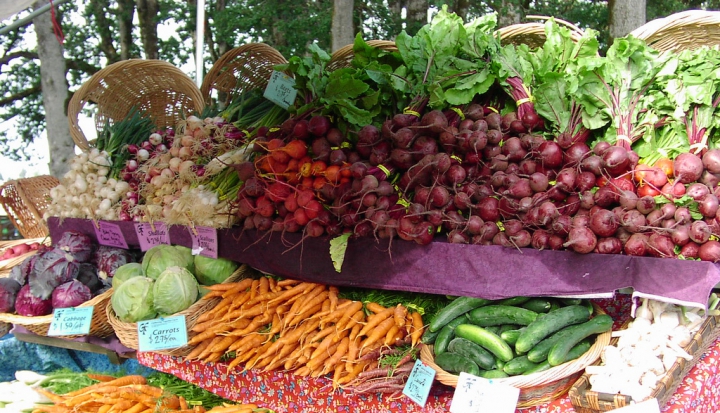Americans like their food—especially produce—to be beautiful. Only the least bruised, best formed fruits and vegetables ever make it to that end stage of the food production system: the supermarket or grocery store shelf.
What’s the harm in a preference for the spotless McIntosh apple? Well, it means that a lot of food goes to waste. It has been estimated that as much as a third of the world’s food ends up wasted. That’s 1.3 billion tons of produce a year, with a value of about $1 trillion.
A good portion of food waste takes place “downstream,” as consumers toss out uneaten or spoiled produce. Retailers throw away unsold fruits and vegetables nearing or past their expiration dates. And shippers and packagers toss out damaged goods along the consumer stream.
A recent investigation by the Guardian includes a closer look at “upstream” waste, that is, produce that never leaves the farm in the first place. It reports that as much as 25 percent or more of that produce is abandoned or discarded: “Vast quantities of fresh produce grown [in the United States] are left in the field to rot, fed to livestock or hauled directly from the field to landfill, because of unrealistic and unyielding cosmetic standards.” The Guardian concludes that as much as 50 percent of the produce grown in the United States is not consumed.
Dana Gunders of the National Resources Defense Council says food waste “not only means that Americans are throwing out the equivalent of $162 billion each year, but also about 25 percent of [the] U.S. water supply and producing 33 million cars’ worth of greenhouse gases, all for food that never gets eaten.”
That degree of waste means higher food prices for consumers in the United States. But it also means higher prices for food in parts of the world where people can’t afford it, and that means real hunger for millions of people.
Waste has been a factor in Pope Francis’ critique of the modern world’s “throwaway culture.” On the United Nations’ World Environment Day in 2013, the pope warned, “Throwing away food is like stealing from the table of the poor and the hungry.”
“Once our grandparents were very careful not to throw away any leftover food. Consumerism has led us to become used to an excess and daily waste of food to which at times we are no longer able to give a just value,” Pope Francis said.
The pope’s suggestion of adopting our grandparents’ impatience with waste may seem quaint, but the idea is being taken seriously by agriculturalists concerned with meeting future global food demand in a manner that will not exhaust the earth or contribute to climate change. Currently close to 30 percent of available agricultural land is used to grow or farm food that is subsequently wasted.
The Obama administration launched an initiative in 2015 to reduce U.S. food waste by 50 percent by the year 2030. Private actors have also stepped forward. In Copenhagen, WeFood, a “food waste” supermarket, markets imperfect produce at prices up to 50 percent cheaper than normal supermarkets. Walmart has begun marketing “ugly” produce at a deep discount and has standardized confusing expiration policies of its suppliers, which often contribute to food waste in the home. In Spain communities are experimenting with “Solidarity Fridges,” community refrigerators where restaurants and citizens drop off food they can’t use or stop by to help themselves to a meal when they are hard-pressed for one.
Pope Francis argues that a vast conversion toward what he calls an “integral ecology” begins with small changes—“simple daily gestures which break with the logic of violence, exploitation, and selfishness” because “in the end, a world of exacerbated consumption is at the same time a world which mistreats life in all its forms.”
One place we might consider making those small gestures is around the dinner table.
This article also appears in the October 2016 issue of U.S. Catholic (Vol. 81, No. 10, page 42).
Image: Flickr cc via Friends of Family Farmers














Add comment